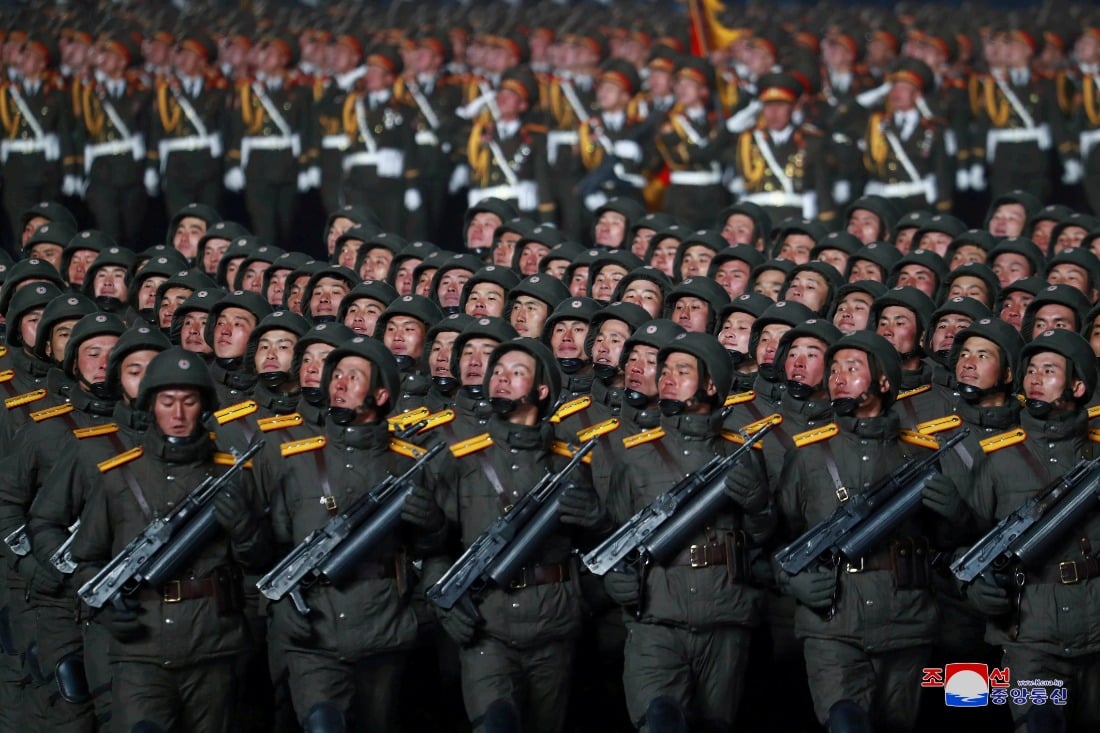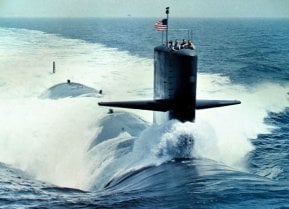A Russia-North Korea Alliance in the Works? Don't Be So Sure
This new cooperation between Russia and North Korea is hardly a signal of a budding long-term alliance and U.S. information campaigns could help speed its demise.
In June, Russia and North Korea signed a comprehensive strategic partnership treaty. To some Western observers, this appears to be an alliance like the U.S.-South Korea bilateral alliance or even the NATO alliance. However, the history of Russia and North Korea relations makes this more likely a marriage of convenience or even a marriage of desperation: Definitely anti-U.S., but potentially far more fragile than one might otherwise expect.
It is therefore hard to predict exactly how this relationship will develop. Russia appears to have pursued it because it was desperate for munitions that could fill the needs for its invasion of Ukraine. And North Korean leader Kim Jong-un is desperate for food and other resources to calm his internal instabilities and to support his military programs. But China views the Russia-North Korea relationship as an affront to the Chinese goal of regional if not global dominance. So once the North Korean artillery and missile stocks are depleted, North Korea will have less to offer Russia, and Russia may decide that it is better to emphasize its relationship with China than its relationship with North Korea.
The Russia-North Korea Partnership
U.S. alliances are defensive, however, Russia and North Korea face no defensive requirement.
Russia’s invasion of Ukraine, which appears to be driving its relationship with North Korea, is offensive, with Russia facing no threat of Ukraine conquering Russia. And while the North Korean regime is most vocal about facing U.S./South Korean attacks, the United States and South Korea have little or nothing to gain from invading the North and would pay immense costs in doing so given the catastrophic consequences of invading a country with nuclear weapons.
The Kim regime says North Korea faces serious invasion threats from the United States and the South to divert attention from its failures and to justify huge military expenditures for forces it plans to use to coerce the South and eventually achieve dominance over it.
Thus, the threat that Russia and North Korea face is internal, not external. Russia’s Putin had no need to invade Ukraine, but he chose to do so anyway. He worries that if the invasion fails, he will not politically survive the displeasure of his people and his elites. North Korea’s Kim Jong-un apparently fears that unless he appears strong and provides more goods for his people, his regime will not survive.
The Evolution of the Historical Relationships
During the Cold War, then North Korean leader Kim Il-sung also needed outside assistance to keep North Korea afloat. Over time, he eventually turned to playing the Soviet Union and China off against each other, seeking aid from one and then using that aid to extract aid from the other. The Soviet Union and China both sought regional dominance and therefore allowed themselves to be exploited by North Korea.
Today, Russia and China are once again each seeking regional dominance. China in particular has established the objective of regional if not global dominance by 2049, and is working seriously on this objective through economic, military, and other means. But China has never been able to truly dominate North Korea, the North often defying Chinese dictates. This North Korean pattern must be truly frustrating to a power-hungry China, especially since it sets a bad example for the other countries of East Asia. And now with Russia appearing to have more influence on North Korea, China must be very unhappy with both North Korea and Russia.
What Should the United States Do?
Given the differences in the objectives of Russia, China, and North Korea, the United States should be mounting major information operations against these three countries to highlight their differences and fuel distrust among them. Doing so would increase the likelihood of decoupling at least some of their partnerships. Some examples of potential information operations seem obvious.
With China, it is important to publicly declare that China seeks dominance in Northeast Asia and beyond. The United States should call attention to how North Korea’s close cooperation with Russia defies Chinese dominance, making China unhappy.
In addition, North Korea regularly threatens to use nuclear weapons, which could ignite a nuclear war in the region. This is likely why Chinese leader Xi Jinping has said that he will not permit war or chaos on the Korean Peninsula. Information operations could sensitize the Chinese leaders and people to these threats, inducing China to pressure North Korea to rein in its nuclear weapon production, its provocations, and its threats to use nuclear weapons.
Information operations are also possible against Russia and North Korea. For example, media stories could tell the Russian people that North Korea has sent a significant number of dilapidated artillery and other munitions to Russia that have been causing Russian casualties. While the North Korean elites have likely been reassured by the food and economic resources that Russia has been providing, the media could explain that North Korea has been apparently exhausting its available munitions supplies such that Russian payments to North Korea will likely be declining significantly in the coming year.
In addition, the United States should recognize that North Korean military advisors are supporting Russian use of North Korean military supplies in occupied areas of Ukraine. The North Korean regime has likely only sent elite North Korean personnel to perform such functions, fearing that other North Koreans would probably defect to the West.
It has been reported that six officers from this group were killed in Russian-occupied areas of Ukraine, a message that will likely anger their families in Pyongyang and thus should also be broadcast into North Korea. The South Korean Defense Minister has said that North Korea will likely send more of its troops to support Russia, probably on the battlefield. Given Russian attitudes, those troops may well serve as cannon fodder. The North Korean elites need to hear what Kim may do to their sons.

Also, North Korean military life supporting the Russian military in captured Ukrainian territory is likely not very good. Russian treatment may make many of those North Korean soldiers receptive to psychological operations against the North Korean regime, an opportunity that should not be missed.
This new cooperation between Russia and North Korea is hardly a signal of a budding long-term alliance and U.S. information campaigns could help speed its demise.
About the Author: Dr. Bruce W. Bennett
Bruce W. Bennett is a senior international/defense researcher at RAND, a nonprofit, nonpartisan research institution. He works primarily on research topics such as strategy, force planning, and counterproliferation within the RAND International Security and Defense Policy Program.
Image Credit: DPRK State Media.


